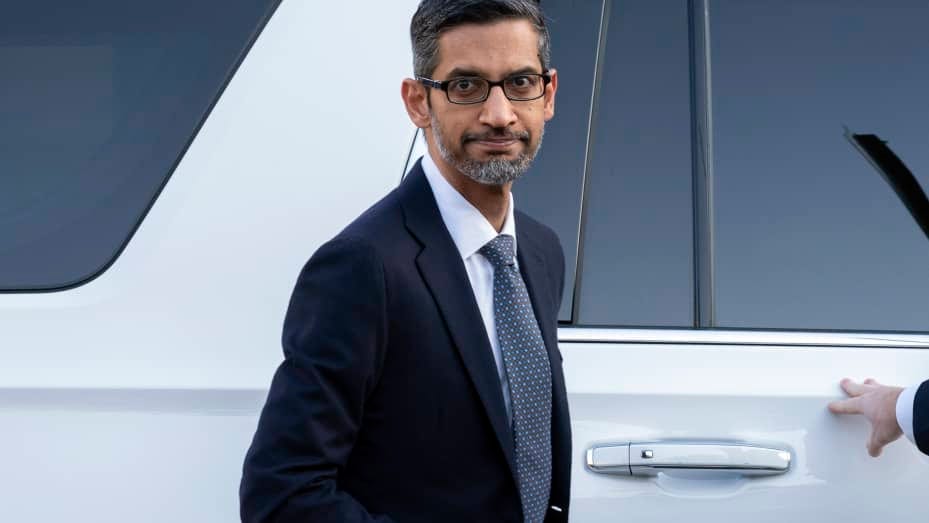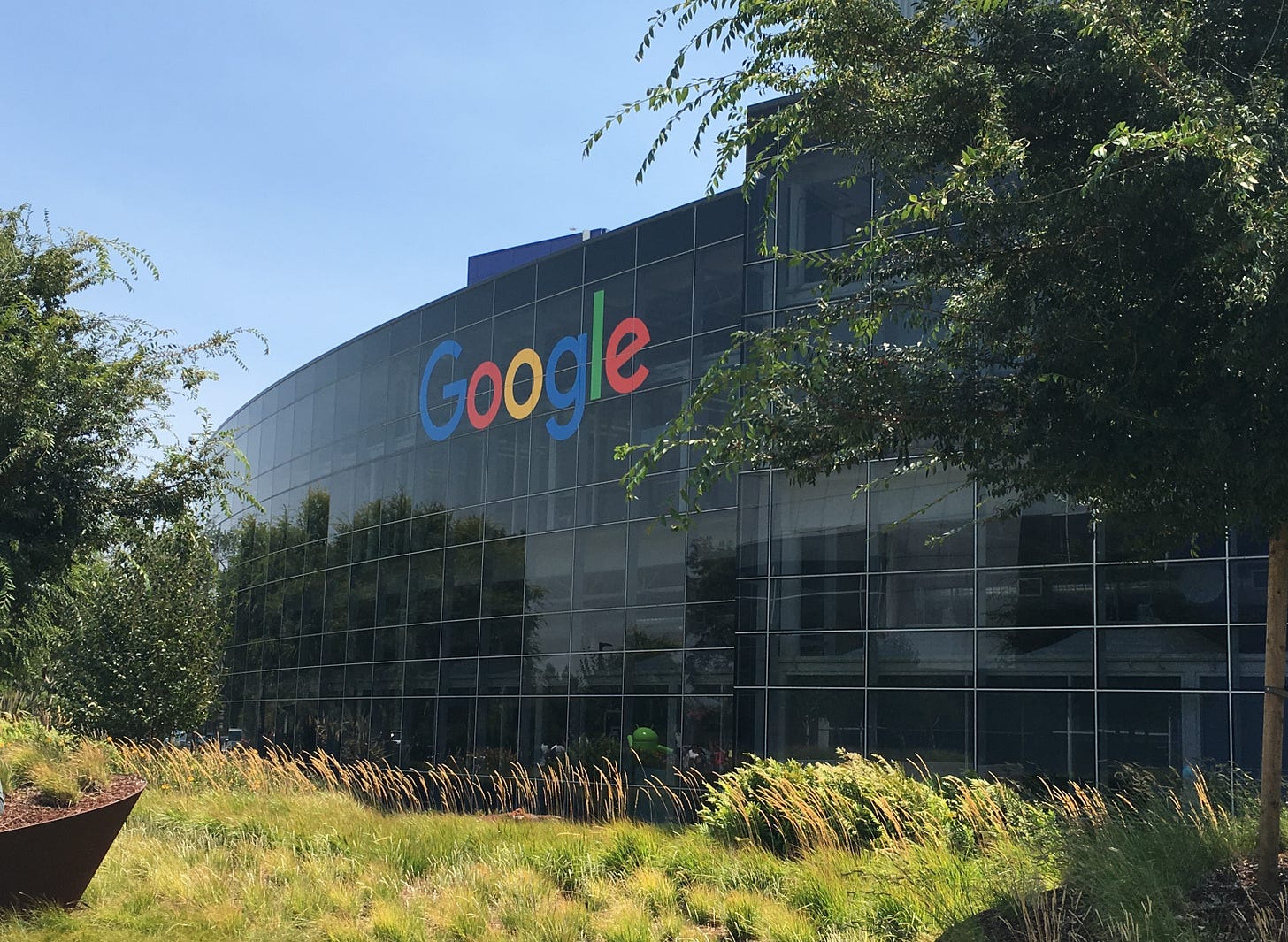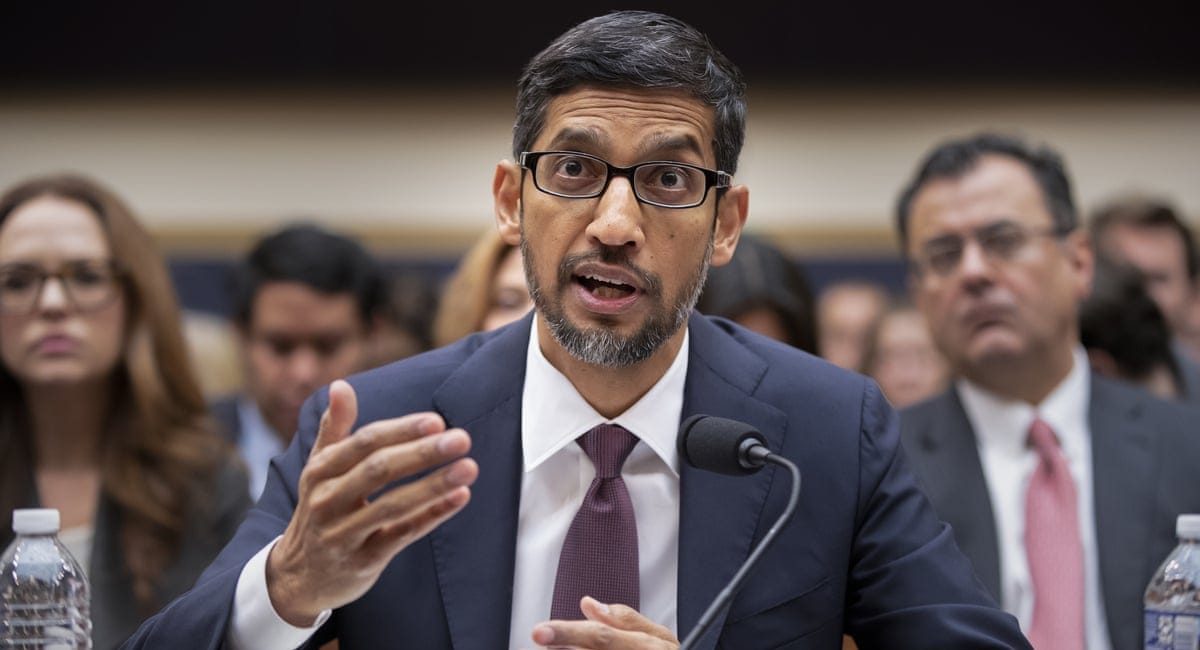David Fells Goliath: Google Loses Crucial Anti-Trust Case to Epic Games
This ain't just a game— an epic loss for Google.
Google Stunned by Epic Games' Antitrust Win
In a landmark ruling that reverberated through the tech world, Epic Games achieved a significant victory over Google in a San Francisco courtroom this week. On Monday, December 11, the jury found that Google's management of its app store violated anti-monopoly laws, striking a major blow to the company's dominance in the Android app market. This verdict not only challenges Google's long-established control but also establishes an important precedent for future antitrust litigation within the technology sector. Following this decision, the judge is expected to issue a ruling in January, outlining the modifications Google must undertake in its business practices to align with legal requirements, as well as any financial penalties that may be imposed. This turn of events signifies a critical shift in the judicial approach to the market practices of major tech corporations.
In response to the verdict, Wilson White, Google's Vice President of Government Affairs and Public Policy, expressed the company's intention to contest the decision. "We plan to challenge the verdict," White stated. "Android and Google Play provide more choice and openness than any other major mobile platform."
On the other side, Epic Games CEO Tim Sweeney celebrated the outcome, acknowledging the significance of the jury's decision. "Victory over Google! After 4 weeks of detailed court testimony, the California jury found against the Google Play monopoly on all counts," Sweeney announced on X, formerly known as Twitter. "Thanks for everyone’s support and faith! Free Fortnite!" This statement encapsulates the triumph felt by Epic Games and its supporters following this notable legal success.
Epic Games Takes on Tech Giants
Epic Games, makers of the hugely popular game 'Fortnite', made a bold move in 2020 by challenging the established payment-sharing systems of both Apple and Google. They altered Fortnite consumer interface to allow users to make payments directly to Epic, bypassing the tech giants' traditional in-app purchase frameworks. This act of defiance quickly led to major repercussions: first, Apple, and then Google, removed Fortnite from their app stores, citing violations of their respective operating agreements. In a direct response to these removals, Epic Games escalated the conflict by suing both companies, asserting that their app store policies infringed upon the Sherman Antitrust Act.

The Legal Battle and its Implications
The lawsuit against Google focused sharply on the company's alleged anti-competitive tactics in the management of its app store. This issue gained prominence after Google's decision to remove Fortnite from its platform, a move Epic Games argued was part of a broader strategy to limit competition in the realm of app distribution. In a notable decision, the jury sided with Epic, marking a rare judicial setback for Google, a company known for navigating legal challenges with relatively little disturbance to its business model. However, the exact consequences of Epic's victory remain uncertain. The final decision rests with Judge James Donato, who will determine the appropriate remedies. Notably, Epic did not seek monetary damages but rather aims for a ruling that grants every app developer complete autonomy to introduce their own app stores and billing systems on Android. The extent to which Judge Donato will accommodate these requests remains to be seen, with discussions on potential remedies scheduled for the second week of January.
In contrast, the legal battle between Epic and Apple has taken a different turn. A federal appeals court confirmed a prior decision favoring Apple, concluding that its app store operations did not violate antitrust laws. This difference in legal outcomes between Google and Apple underscores the distinct challenges and complexities faced when addressing the app store policies of these tech giants. While Google permits the installation of apps from external sources, it still engages in practices that preferentially support its own app store. The trial shed light on internal Google communications and featured testimony from a variety of company executives and industry experts, highlighting the intricate and multi-layered nature of antitrust issues in digital app distribution.
Implications for Big Tech and App Store Dynamics
The jury's decision has far-reaching implications for the broader tech industry, particularly concerning how major companies control app store pricing and payment systems. Epic Games' legal victory represents a bold challenge to the dominance of Google and Apple in the app store market, potentially reshaping how billions of people access and download mobile apps.
Google's Monopoly and the Court's Future Directions
The jury's decisive conclusion that Google possesses a monopolistic hold over Android app distribution marks a significant moment in the ongoing discussion about competition in the tech industry. On Monday, the jury unanimously affirmed all 11 charges against Google, establishing that the tech giant not only holds a monopoly over how apps are distributed on Android phones but also that it has breached competition laws in operating its app store. Furthermore, the jury found that Google engaged in exclusive agreements with certain companies, effectively preventing them from developing competing app stores.
This comprehensive verdict sets the stage for a crucial ruling due in January, which will determine the specific modifications Google must implement in its business operations to adhere to legal standards. This forthcoming decision is expected to pave the way for increased competition in the app store market, potentially reshaping the dynamics of app distribution on Android devices.
The Global Perspective: Impact on Google and Apple
This significant legal development against Google forms part of a broader international trend. Around the world, countries and regions are increasingly scrutinizing the app store practices of both Google and Apple. Key players like South Korea, the Netherlands, and the European Union are challenging the traditional 30% transaction fees imposed by these tech giants, advocating for more open and competitive app store ecosystems. This collective pushback reflects a growing global movement aimed at breaking the duopoly that Google and Apple have long held in the app store market.
In response to these developments, a spokesperson for Apple chose not to comment. Google, on the other hand, has expressed its intent to contest the jury's decision. Wilson White, Google's Vice President of Government Affairs and Public Policy, announced the company's plan to appeal, indicating that the legal battle may be far from over.
India's Stance: The CCI Case Against Google
In October 2022, the Competition Commission of India (CCI) imposed a significant penalty on Google for engaging in anti-competitive practices. The CCI's decision, which amounted to a penalty of Rs. 1337.76 crore, was directed at Google's practices in relation to its Android mobile devices and was later upheld by the National Company Law Appellate Tribunal (NCLAT). These allegations centered around Google's abuse of its dominant position in the Android ecosystem, particularly through the bundling of its products like the search engine and Chrome browser, thereby reinforcing its market dominance. Additionally, the CCI penalized Google another $162 million for restricting app developers from using third-party payment systems.
This action by the CCI reflects an initiative to promote fair competition and lower costs for both app developers and users. Google has responded by challenging the CCI's decision and the NCLAT's ruling in the Supreme Court, which is set to hear the appeal in January 2024. Notably, the Supreme Court has neither stayed the NCLAT order nor granted interim relief to Google, indicating a strong stance against the company's market practices. This development in India is in line with the increasing global scrutiny that tech giants like Google are facing for potential anti-competitive behavior.
End of the Beginning in App Store Governance
Monday's jury verdict in the Epic Games vs. Google antitrust lawsuit marks a significant turning point in the debate over the regulation and integrity of app stores. This decision, focusing specifically on Google's practices, stands apart from another major legal challenge facing the company. In a separate but related case, Google and Alphabet Inc. CEO Sundar Pichai appeared as a primary witness at the Federal Courthouse in Washington, D.C., on October 30, 2023. This testimony is part of an extensive antitrust trial spearheaded by US Attorney General Merrick B. Garland, a 10-week examination beginning September 12, 2023, into Big Tech's complex role in the current regulatory landscape1.
In light of these events, Kent Walker, Google’s President of Global Affairs and Chief Legal Officer, highlighted the importance of American law in fostering consumer benefits in a statement to the New York Times. This perspective sheds light on the intricate balance that major tech companies must maintain between adhering to legal standards, protecting consumer interests, and promoting competitive practices.
The recent jury decision, while directly affecting Google, also has far-reaching implications for other tech giants, particularly regarding the operations of app stores such as Apple's. This verdict contributes to the global momentum toward creating more equitable and competitive digital marketplaces. As these legal proceedings continue, they are expected to induce significant changes in the app store environment, potentially transforming the way tech companies, app developers, and consumers engage on a global scale2.
Google's Antitrust Trial in USA— Commences 12th September
Introduction When Google burst onto the scene in the late '90s with its revolutionary search engine, it was lauded as a game-changer. Fast forward to today, and this Silicon Valley behemoth boasts a valuation of $1.7 trillion, shaping not just how we seek information but also infl…
Sundar Pichai's Testifies as Google's Star Witness in U.S. Antitrust Case
The Power of Default: A Contested Terrain Sundar Pichai, the CEO of Google, on Monday, October 30, 2023 testified in a landmark U.S. antitrust case, underscor…








